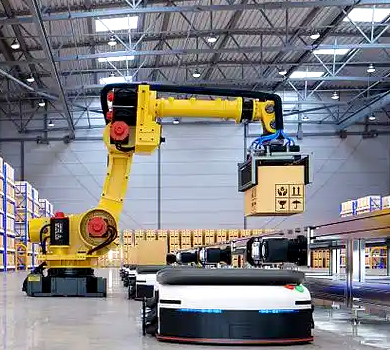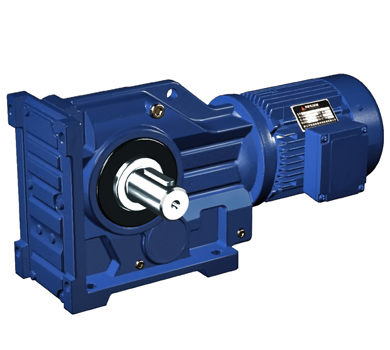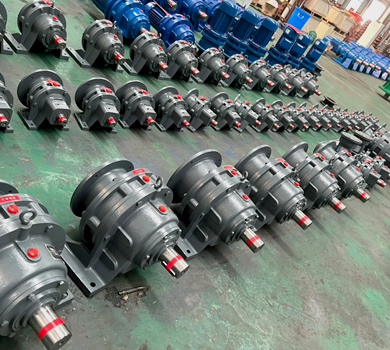Пищевая промышленность переживает значительные изменения с ростом автоматизированных систем для резки, мойки и сортировки овощей. Эти линии включают в себя машины для нарезки, конвейеры, мойки, вибрационные питатели и сортирующие роботы, все из которых требуют точного и надежного управления движением. Повышенный спрос на высокую пропускную способность, постоянное качество продукции и соблюдение строгих стандартов гигиены и безопасности пищевых продуктов усилили потребность в передовых приводных технологиях.
Актуальные проблемы отрасли включают ограничения традиционных приводных систем в работе с высокими динамическими нагрузками, поддержании точности при изменяющихся условиях и обеспечении достаточной долговечности в условиях высокой влажности и температуры. Кроме того, ограничения по пространству и необходимость энергоэффективности затрудняют достижение оптимальной производительности без ущерба для дизайна или затрат.
Ключевая роль и технические требования к редукторам:
- Высокая динамическая нагрузка: Редукторы должны выдерживать постоянные ударные нагрузки и вибрации из-за повторяющихся и высокоскоростных операций нарезки и сортировки.
- Точность и воспроизводимость: Механизмы нарезки и подачи требуют высокой точности позиционирования, чтобы избежать потерь и обеспечить равномерный выход.
- Ограничения по площади: Современные пищевые производственные помещения требуют компактных и модульных решений для максимального использования полезной площади и упрощения производственных схем.
- Энергоэффективность: Участники рынка сталкиваются с давлением сократить энергопотребление, не ухудшая производительность.
- Сервис и долговечность: Стандартные компоненты быстро выходят из строя в условиях высокой влажности и чистящих средств, требуя частой замены и остановки линии. The core technical requirements include: The core technical requirements include:
- Высокая плотность крутящего момента: Для работы с тяжелыми нагрузками от механизмов нарезки и транспортировки без необходимости увеличения габаритов.
- Высокая точность передачи: Для синхронного движения нескольких осей в процессах подачи и сортировки.
- Быстрое время реакции: Позволяет быстро ускоряться и замедляться для реального времени управления движением.
- Совместимость с принципом plug-and-play: Упрощает интеграцию с существующими платформами автоматизации и сокращает время настроек.
- Интеграция управления и сокращение проводки: Централизованное управление и минимальная проводка необходимы для упрощения установки и снижения количества точек отказа.
- Интеллектуальные функции: Поддержка IoT, диагностики в реальном времени и планового технического обслуживания повышает время безотказной работы и снижает затраты.
- Стойкость к воздействию окружающей среды: Должны выдерживать высокие температуры, попадание воды и частые циклы самоочистки без потери производительности.
- Долгий срок службы и низкая частота обслуживания: Обеспечивает постоянную работу и минимизирует простоя.
Решение Waimica: Трехвехланный редуктор (редуктор + двигатель + контроллер):
Инновационный трехвехланный редуктор Waimica разработан для решения конкретных потребностей высокопроизводительных автоматизированных линий по обработке овощей. В этой системе в одном компактном модуле интегрированы планетарный редуктор высокой точности, бесщеточный двигатель переменного тока и программируемый контроллер. Такой подход сокращает объем системы, упрощает установку и повышает общую надежность.
Ключевые преимущества конструкции:
- Компактный и модульный дизайн: Оптимизирован для интеграции в ограниченное пространство, с гибкими вариантами крепления и стандартизированными интерфейсами.
- Интеграция высокопроизводительного двигателя: Обеспечивает точный контроль крутящего момента и энергоэффективность, с мощностью от 0,5 до 5,5 кВт.
- Интеграция продвинутого управления: Встроенный контроллер поддерживает цифровые входы/выходы и связь через полевые шины (например, CANopen, EtherCAT), обеспечивая бесшовную интеграцию с промышленными системами автоматизации.
- Стойкость к коррозии и водонепроницаемость: Редукторы предназначены для использования в условиях высокой влажности, с компонентами из нержавеющей стали и уплотненными подшипниками для защиты от воды, масел и моющих средств.
- Термостойкость: Подходят для работы при температурах до 120°C, с тепловой защитой и усиленным охлаждением для поддержания стабильности при нагрузке.
- Конфигурация plug-and-play: Исключает сложные соединения проводов и сокращает время настройки системы на 50% по сравнению с традиционными тремя компонентами.
| Технический параметр | Трехвехланный редуктор Waimica |
|---|---|
| Диапазон крутящего момента | 5 Нм до 200 Нм |
| Точность скорости | ±0,1% (при 3000 об/мин) |
| Эффективность | До 95% (при номинальной нагрузке) |
| Тип входного фланца | IEC B5/B14, NEMA C-face, ISO 953 |
| Интеграция управления | Встроенный программируемый контроллер с CANopen и EtherCAT |
| Окружающая среда | IP67, подходит для условий мойки |
| Температурный диапазон | -10°C до +120°C |
| Срок службы | 20 000+ часов работы (при номинальных условиях) |
| Варианты крепления | Фланец, подвижное крепление, крепление в линию |
| Поддержка настройки | Доступны различные передаточные числа и типы двигателей |
Заключение и ценность бренда Waimica:
Трехвехланный редуктор Waimica представляет собой прорыв в компактных и эффективных решениях управления движением для пищевой промышленности. Благодаря высокой плотности крутящего момента, продвинутым возможностям управления и устойчивости к окружающей среде, наша система превосходит традиционные решения по производительности и стоимости.
The future of food processing is clearly moving toward higher levels of automation, precision, and integration. Waimica is well-positioned to support this transition with innovative, intelligent, and future-proof drive solutions. By partnering with Waimica, customers gain a trusted long-term collaborator in their pursuit of operational excellence and sustainable growth.






